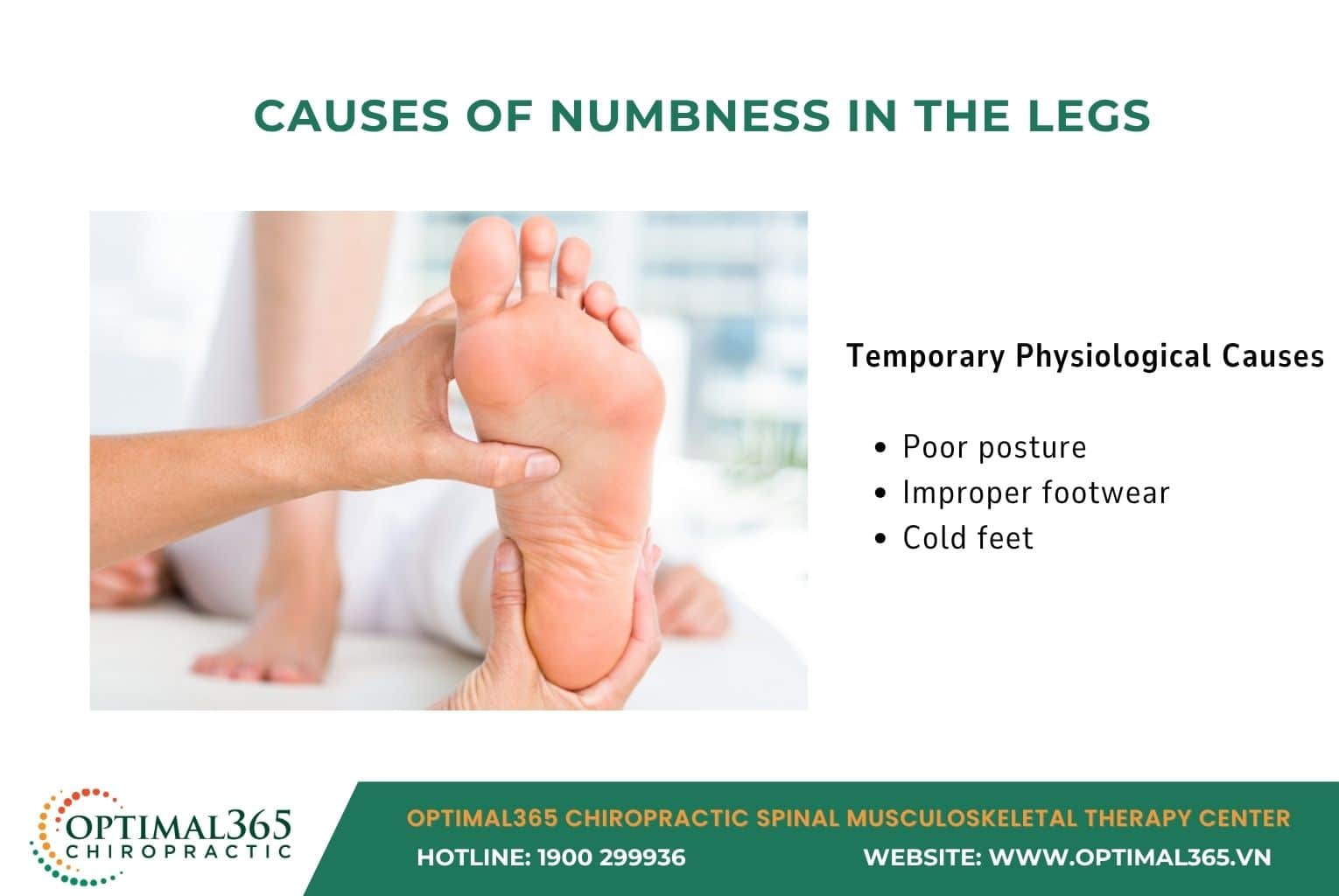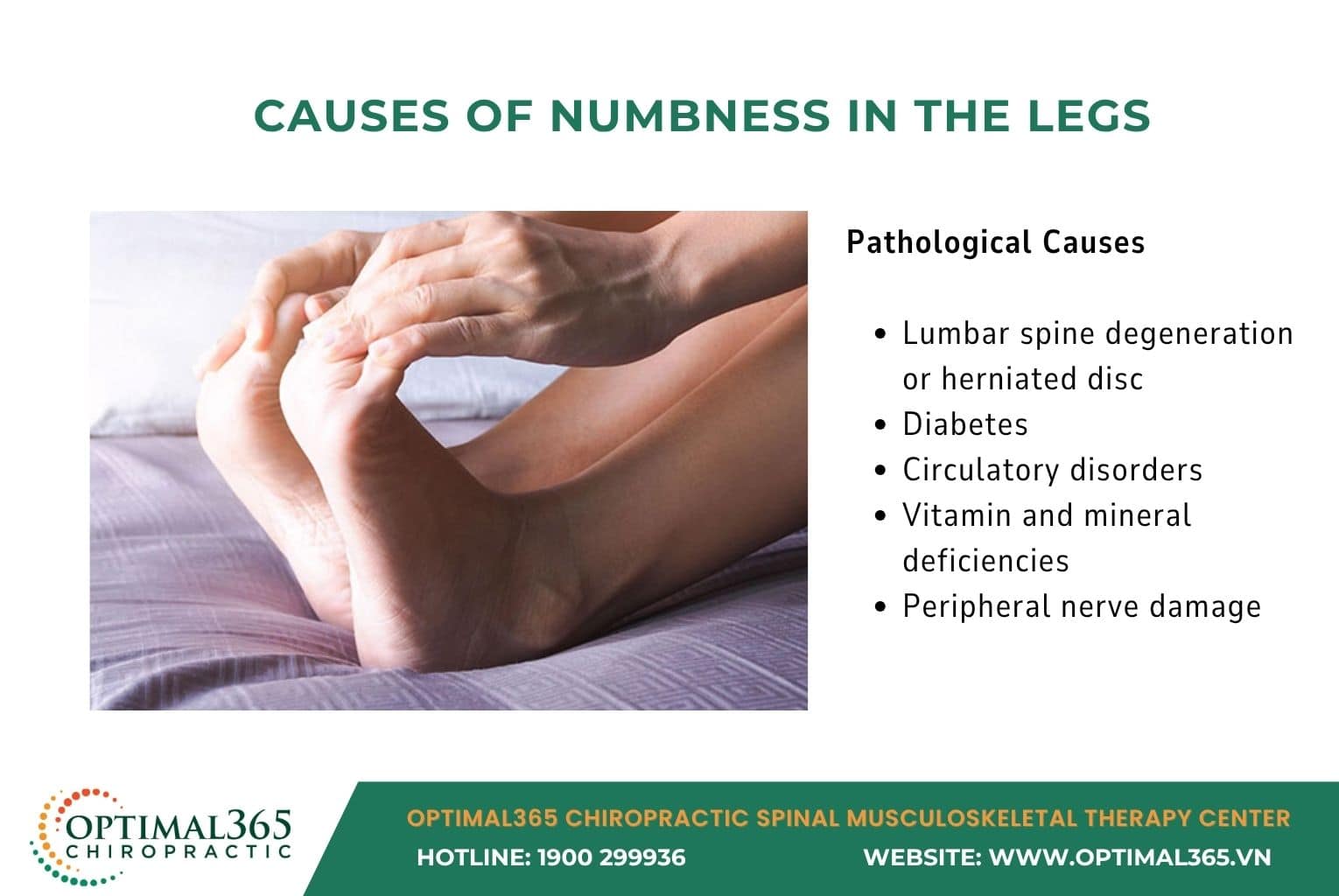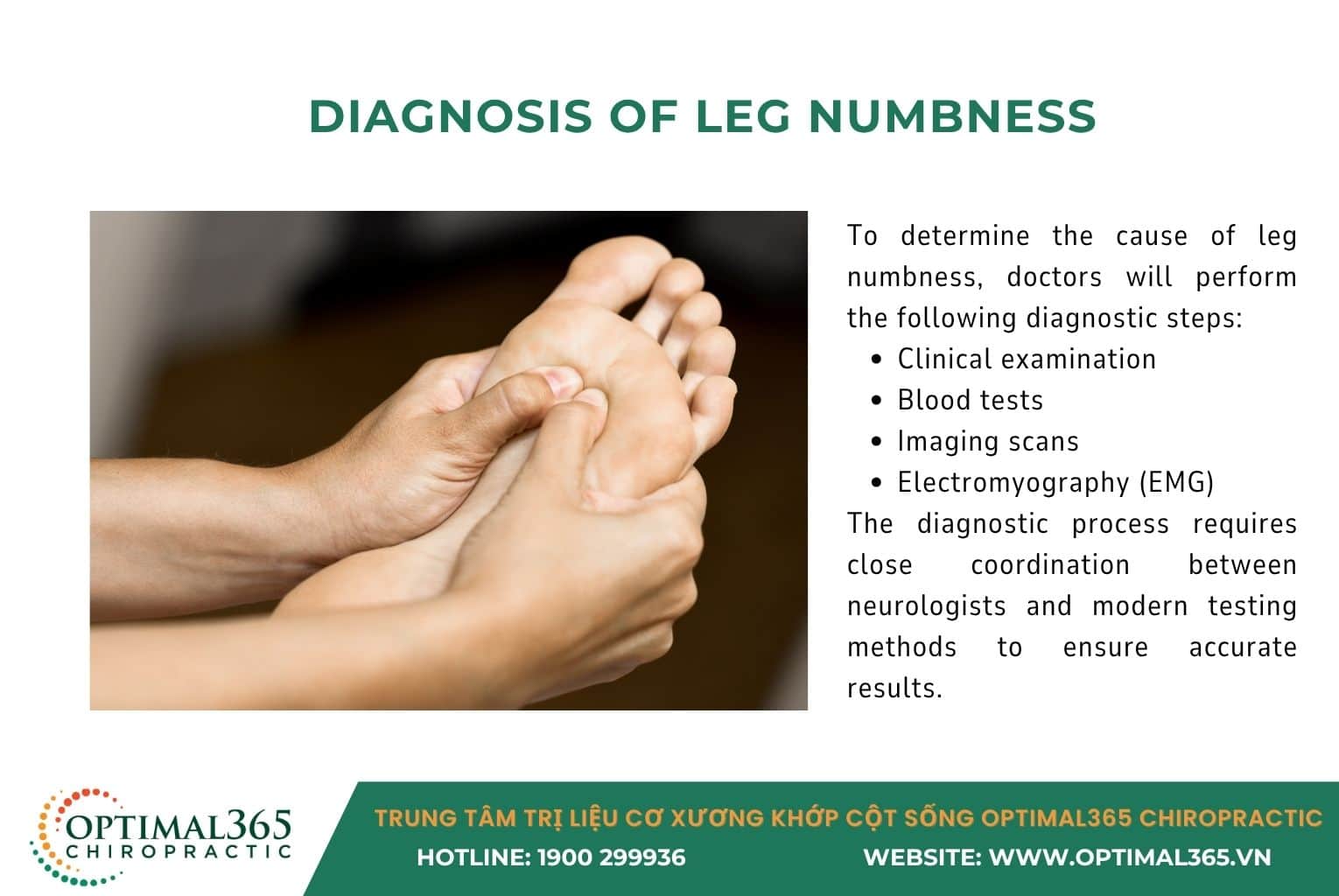Foot numbness, a common condition, is characterized by a tingling, prickling, or loss of sensation in the feet, toes, or lower legs. According to the Mayo Clinic, this symptom often arises from poor posture, but if persistent, it may signal serious neurological or circulatory issues. With sedentary lifestyles and work-related stress, many people, especially those over 40 or with diabetes, often ask: “Is foot numbness dangerous?” or “How can it be treated effectively?” This article provides detailed insights into the causes, symptoms, and effective treatments to help you maintain healthy feet. Explore optimal solutions at Optimal365 Chiropractic.
Causes of Foot Numbness
Understanding the causes of foot numbness is the first step toward finding the right solution. According to the Cleveland Clinic, foot numbness can be divided into two categories: temporary physiological causes and chronic pathological conditions.
Temporary Physiological Causes
Foot numbness often results from daily habits. Common causes include:
- Poor Posture: Sitting cross-legged or standing for prolonged periods can compress nerves and blood vessels in the legs, causing tingling or numbness.
- Inappropriate Footwear: Shoes that don’t fit properly or frequent use of high heels can increase pressure on the feet, leading to numbness and discomfort.
- Cold Feet: Low temperatures can cause blood vessels to constrict, reducing blood flow to the feet and causing numbness.

Temporary Physiological Causes of Leg Numbness
Pathological Causes
Persistent foot numbness may indicate more serious health issues, including:
- Lumbar Degenerative Disc Disease or Herniated Disc: These conditions compress the sciatic nerve, causing numbness, pain, or tingling radiating from the lower back to the feet. Lumbar degeneration is a common cause.
- Diabetes: Long-term diabetes can damage peripheral nerves, leading to numbness in the feet and toes.
- Circulatory Disorders: Poor blood flow due to atherosclerosis or other vascular issues can cause foot numbness.
- Vitamin and Mineral Deficiencies: Deficiencies in vitamin B1, B12, calcium, or magnesium can impair nerve function, resulting in numbness.
- Peripheral Nerve Damage: Injuries, surgeries, or conditions like peripheral neuropathy can also be underlying causes.

Pathological Causes of Leg Numbness
Symptoms of Foot Numbness
Recognizing the symptoms of foot numbness helps assess its severity. Common signs include:
- Tingling or Prickling Sensation: This is the hallmark symptom, often felt in the toes, feet, or lower legs.
- Loss of Sensation: Some individuals may experience a complete lack of feeling in the affected area.
- Muscle Weakness or Difficulty Moving: Numbness may be accompanied by weakness, making walking unsteady or increasing the risk of falls.
- Pain or Cramping: Numbness can sometimes be associated with aching, cramping, or swelling in the feet.
- Spreading Numbness: In cases related to the sciatic nerve, numbness may extend from the feet to the thighs or buttocks.
If these symptoms occur frequently, it’s crucial to identify the cause and seek timely treatment.
When Is Foot Numbness Dangerous?
Not all cases of foot numbness are concerning, but certain signs indicate the need for immediate medical attention. The severity depends on the duration and accompanying symptoms. Seek medical advice if:
- Numbness Persists for Over a Week: Persistent or recurring numbness is abnormal.
- Accompanied by Muscle Weakness or Loss of Motor Control: This may indicate serious nerve damage.
- Radiating Pain from the Lower Back to the Feet: This is a classic symptom of a herniated disc or sciatic nerve compression.
- Systemic Symptoms: Dizziness, fatigue, or a history of long-term diabetes warrants thorough evaluation.
What does foot numbness indicate? Accurate diagnosis is critical to answering this question.
Related Article: Numbness in Fingertips: Causes and Treatments
Diagnosing Foot Numbness
To determine the cause of foot numbness, doctors typically perform the following:
- Physical Examination: Assessing nerve reflexes, sensation in the feet, and mobility.
- Blood Tests: Checking blood sugar levels, vitamin B12, calcium, and magnesium to identify deficiencies or diabetes-related issues.
- Imaging Tests: MRI or CT scans are used if a herniated disc or nerve compression is suspected.
- Electromyography (EMG): This test evaluates nerve and muscle function to detect peripheral nerve damage.
Accurate diagnosis requires collaboration between neurologists and advanced testing methods to ensure precise results.

Diagnosing Foot Numbness
Effective Treatments for Foot Numbness
Treatment for foot numbness depends on the underlying cause, aiming to alleviate symptoms and prevent recurrence.
Medical Treatments at Optimal365 Chiropractic
- Medications: Doctors may prescribe vasodilators, pain relievers, or vitamin B supplements (B1, B6, B12) to improve nerve function.
- Physical Therapy: Exercises or chiropractic care can relieve nerve compression and improve blood circulation.
- Deep Muscle Therapy: This method focuses on releasing nerve compression and enhancing muscle function.
Lifestyle Changes
Adopting healthy habits plays a vital role in reducing foot numbness:
- Light Exercise: Walking, yoga, or swimming can improve blood flow and reduce nerve pressure.
- Avoiding Harmful Postures: Limit prolonged sitting or standing and change positions frequently to prevent nerve compression.
- Keeping Feet Warm: Especially in winter, keeping feet warm improves circulation.
- Healthy Diet: Include foods rich in vitamin B12 (meat, fish, eggs), magnesium (nuts, greens), and omega-3 (salmon, chia seeds) to support nerve health.
Preventing Recurrence of Foot Numbness
To prevent foot numbness from recurring, maintain a healthy lifestyle and proactive care:
- Maintain a Healthy Weight: Excess weight increases pressure on the spine and nerves, contributing to numbness.
- Daily Stretching: Simple stretching exercises enhance flexibility and reduce nerve compression risks.
- Regular Checkups: For those with conditions like diabetes or spinal degeneration, routine medical evaluations help detect and address issues early.
Conclusion
Foot numbness may be a temporary issue caused by posture or habits, but in some cases, it signals underlying conditions like herniated discs, diabetes, or circulatory disorders. If you experience frequent numbness, especially radiating to the buttocks or lower back, seek professional evaluation and treatment promptly. Schedule a consultation at Optimal365 Chiropractic for free advice and tailored solutions to safeguard your health.











